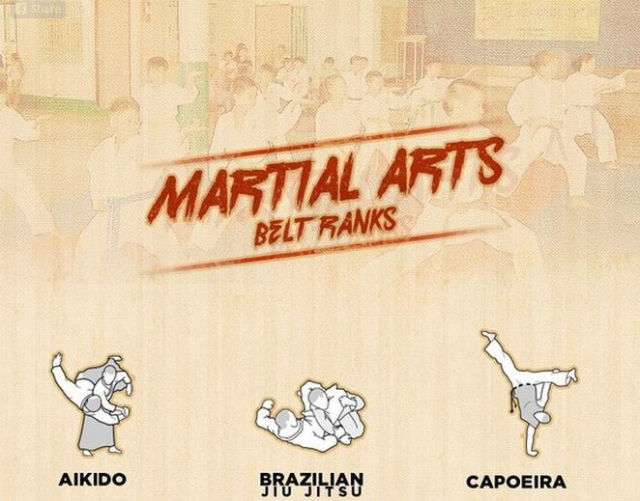The History And Philosophy Of Martial Arts: A Deep Dive
The History And Philosophy Of Martial Arts: A Deep Dive
Blog Article
Material By-Barber Henson
Step into the ancient world where martial arts were born out of necessity in diverse areas. Cultures crafted distinct combating styles intertwined with historical contexts. Techniques developed over centuries via dedicated method and social exchanges. why not try these out , modern martial arts blend traditional components for maximum performance. Philosophically, martial arts emphasize discipline, self-improvement, and harmony. Regard, humility, and equilibrium are fundamental concepts leading professionals in the direction of growth and durability. Check out the midsts of this abundant history and approach to uncover the profound influences shaping this long-lasting discipline.
Beginnings of Martial Arts
Fighting style came from different areas worldwide, progressing as useful combat systems to resist risks. These ancient fighting styles were established out of necessity, with each culture crafting techniques suited to their unique atmospheres and challenges. From the grappling arts of Jujutsu in Japan to the striking techniques of Martial art in China, martial arts were deeply intertwined with the historical, social, and cultural textile of their corresponding societies.
In Japan, the samurai course polished martial arts like Kenjutsu, the art of the sword, which later on progressed into the a lot more popularized type of Kendo. Meanwhile, in Brazil, Capoeira became a blend of dancing and battle, developed by enslaved Africans as a way to resist fascism. Each fighting style carries with it a rich background and approach, reflecting the worths and beliefs of the people who practiced them.
As you delve into the beginnings of martial arts, you reveal a tapestry of human ingenuity, strength, and the unrelenting spirit of warriors throughout time.
Evolution of Methods
With centuries of technique and refinement, combat methods within various martial arts have actually gone through a profound evolution. From old styles like Martial art and Karate to more contemporary self-controls such as Brazilian Jiu-Jitsu and Krav Maga, the evolution of methods has been driven by a combination of social influences, useful applications, and technological developments.
One significant aspect of this development is the cross-pollination of methods between different martial arts. For instance, techniques from standard Japanese Jiu-Jitsu were included into the creation of Judo by Jigoro Kano in the late 19th century. This blending of styles has actually resulted in the growth of hybrid martial arts like Mixed Martial Arts (MMA), which combine elements of striking, grappling, and submission techniques.
Furthermore, the evolution of techniques has been shaped by the boosting emphasis on performance and efficiency in fight. Experts have constantly sought to improve their methods via extensive training, experimentation, and competitors, resulting in the development of very specialized and reliable combating designs. Overall, the evolution of techniques in martial arts reflects the vibrant nature of fight and the recurring quest for renovation and innovation.
Thoughtful Foundations
Exploring the underlying thoughtful principles of martial arts supplies understanding into their core values and directing ideas. At the heart of lots of martial arts disciplines is the concept of technique itself. By educating your mind and body to function as one cohesive system, you grow technique that extends beyond the dojo or health club into day-to-day life. This technique includes respect, humbleness, and self-constraint, forming not just your physical capacities yet likewise your character.
One more basic thoughtful structure in martial arts is the idea of constant self-improvement. The journey of grasping a fighting style is nonstop, with practitioners regularly striving to much better themselves, both literally and emotionally. Click In this article on growth cultivates strength, willpower, and a development state of mind that can be put on all elements of life.
Moreover, martial arts stress the value of harmony and equilibrium. Techniques are created to use an opponent's energy versus them, highlighting the principle of producing and rerouting pressure instead of satisfying it head-on. This philosophy encompasses social partnerships, promoting calm resolutions and good understanding. By embracing these philosophical foundations, martial artists not just improve their battle abilities however likewise cultivate a lifestyle fixated individual development, respect, and harmony.
Conclusion
To conclude, the background and philosophy of martial arts supply a rich tapestry of custom, technique, and self-improvement.
Consider instance the tale of Bruce Lee, that revolutionized martial arts by blending various styles and philosophies to produce his very own special form of Jeet Kune Do.
Via devotion and innovation, martial artists remain to push boundaries and influence others to reach their complete capacity both in combat and in life.
